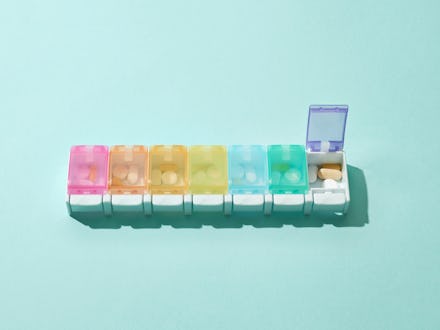Men are dying from coronavirus at higher rates. Could estrogen save them?

As researchers the world over try to find ways to prevent, track, treat, and cure the novel coronavirus, they have started to notice a curious pattern. Men, it seems, are more likely to develop severe symptoms from COVID-19 and more likely to die from it, reported the New York Times. This has led researchers to begin investigating whether female sex hormones can help men fight coronavirus.
“There’s a striking difference between the number of men and women in the intensive care unit, and men are clearly doing worse,” Sara Ghandehari, a pulmonologist and intensive care physician at Cedars-Sinai in Los Angeles told the Times. She is now leading a study in Los Angeles that will treat male COVID-19 patients with progesterone, in order to boost their immune systems.
The theory is that the anti-inflammatory actions of progesterone may help prevent the immune system from overreacting to the virus. To be clear, men do produce progesterone — in fact, they need it to produce testosterone — but they have much lower amounts than women. Progesterone is highest in pregnant women, the Times reports, who tend to have comparatively mild cases of COVID-19.
Two similar trials are beginning in New York. The Renaissance School of Medicine at Stony Brook University on Long Island will treat both male and female patients over 55 with COVID-19 symptoms with estrogen, a female sex hormone thought to help regulate the immune system.
Women’s estrogen levels drop after menopause, and researchers are trying to figure out whether an increase in estrogen will help them and their male counterparts combat the disease, reported The New York Times. Using patients of two genders who share low estrogen levels will help scientists determine if it’s estrogen that is the key element, or some other mysterious aspect of womanhood.
Another estrogen study, being conducted at Cedars-Sinai, will only treat male patients with estrogen. Both will observe the differences in severity of symptoms between patients administered estrogen and control groups. There are some side effects of hormone therapy for men, namely hot flashes and potential breast tenderness, reported the Times, but they are minor compared to the devastating effects of coronavirus.
“Something about being a woman is protective, and something about pregnancy is protective, and that makes us think about hormones,” Ghandehari told the Times. Indeed. But elderly women with COVID-19 are also reportedly outliving their male peers — long after their hormone levels have dropped.
So, yes, there is indeed, something about being a woman that may protect us from succumbing to illness, but I, for one, am tempted to wonder whether that difference can be reduced to hormones. Any femme — whether biologically assigned female at birth or not — knows that surviving the cis-patriarchy takes a lot more than estrogen. That could be true of COVID-19, too.